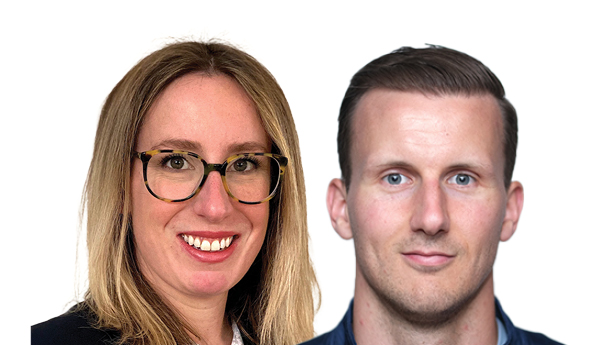For the second consecutive year, the Rappaport Center awarded grants to support research related to the Rappaport Summer Fellowship internships. This year, the Center selected two 2021 Fellows for the competitive award: Emily Dillan, a 2L at UMass School of Law, and Patrick O’Connor, a 2L at Harvard Law School.
The grant is designed to assist Fellows in undertaking research that contributes to law and public policy and advances their academic pursuits. Fellows will conduct their research, with support and mentorship from the Rappaport Center Faculty Director and Boston College Law School Professor Daniel Kanstroom, throughout the 2021-2022 academic year.
Entering law school, Emily intended to help survivors of domestic abuse who had experienced intimate partner violence (IPV) rebuild their lives. Her interest was solidified after working during her Fellowship summer at the Office of State Representative Natalie Higgins, where she witnessed the ways in which institutional systems inadvertently prevent survivors from seeking justice and the systemic barriers that operate against them even if they do.
Emily explained that M.G.L Ch. 276B, Section 3, the Criminal Justice Reform Act of 2018, “includes a carveout against alternative justice models is a perfect example of how the state disenfranchises survivors because it limits their remedies in addressing the abuse. After my experience this summer, I truly feel that allowing a restorative justice model in situations of IPV is one of the ways in which we can empower more survivors to come forward as it helps protect against the unwanted side effects of litigation in both the survivor’s and abusive partners lives.”
Through research into domestic violence case law and outcomes, as well as interviews with policy makers, lobbyists, domestic violence organizations, academics, district attorneys, batterers’ intervention programs, and survivors themselves, both in Massachusetts as well as in Washington state where the issue has been addressed through legislation, Emily will demonstrate how Massachusetts should change the language of M.G.L Ch. 276B, Section 3 to modify the prohibition against restorative justice in proceedings against a family or household member.
This past summer, Patrick was a Rappaport Fellow at the Department of Elementary and Secondary Education (DESE). As a former teacher and football coach at Lawrence High School in Massachusetts, Patrick has a particular passion for education reforms. At DESE, he had the opportunity to investigate recent student discipline reform that was passed by the state legislature in 2012. The legislature focused on increasing equity, consistency, and alternatives to suspension and expulsion. However, Patrick noted that for the most serious alleged offenses, disciplinary procedures went largely unchanged and school administrators retain vast discretion in each step of the process. His paper will examine the due process rights of Massachusetts students in school discipline cases when there has been an alleged “statutory” violation (i.e., drugs, weapons, assault, felony charge) and will propose a new framework that better balances the competing demands of learning, fairness, order, equity, and justice in school disciplinary procedures for serious offenses.
About the Fellowship Program
The Rappaport Center for Law and Public Policy Fellowship Program attracts law students from across Massachusetts who want to learn about the intersection of law and public policy. The 10-week intensive summer Fellowship program provides gifted law students with the opportunity to experience the intricacies and rewards of public service within the highest levels of local and state governments. Throughout the summer, Fellows are introduced to the ways law and public policy impact the quality of life in our communities, state, and region. For many Fellows, their experience inspires them to continue the vital law and policy work related to their summer placement--well beyond the program’s duration. Throughout the summer, Fellows receive a generous stipend, educational programming, and mentoring.



